Home composting
Composting is not only great for your garden, it's a more environmentally friendly way to get rid of food waste.

All vegetables, flower and herbs will thrive in soil that’s rich in nutrients. Well watered, well nourished plants will not only produce tastier crops, but will have a better chance of keeping insect pests and diseases at bay. The better the soil, the better your plants will grow. Keep the soil in your vegetable garden healthy by digging through compost a few weeks before you plan to plant anything outside. Composting is good for the environment as it allows food to break down naturally, with oxygen. This means it does not release harmful greenhouse gases like it would do, if it was buried in a landfill. The food waste breaks down into a rich material that enhances soil and makes your garden beautiful and fruitful. It is the perfect method for getting rid of inedible food like banana and citrus peels, onion and garlic skins, capsicum cores and eggshells. Compost is made up of layers of green material (high in nitrogen) and brown material (high in carbon). Green materials are lawn clippings, manure, fruit and vege scraps, coffee grounds, seaweed and green plant material. Brown materials are wood ash, paper, cardboard, sawdust, dry leaves, straw hay, and woody plant material.
How to make your own compost
Top tips for home composting.
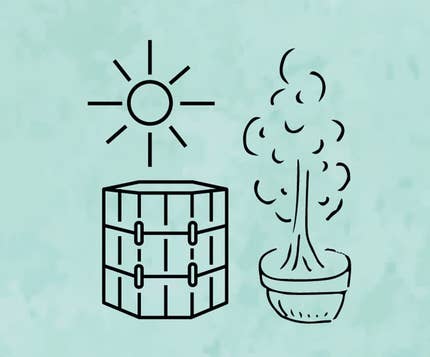
Location
Find a sheltered, partially-sunny, level area in your garden with good drainage for the bin.
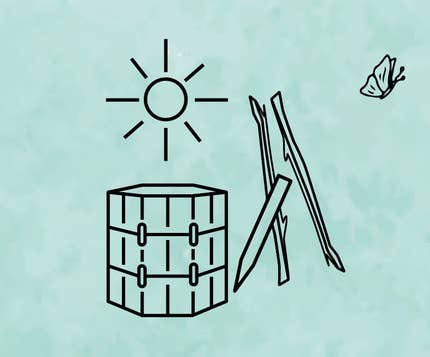
Setup
Place sticks/twigs in the base of the bin to allow air flow. Tip: If you have space, set up two bins so when one is full you can start filling up the other.
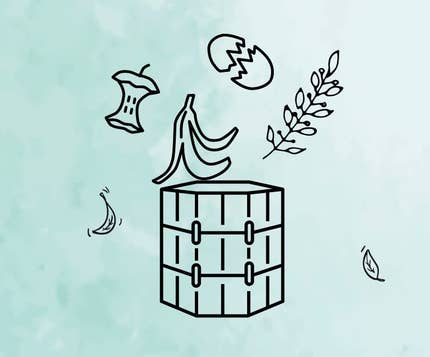
Fill
Start composting food scraps and cardboard in the bin (layers of each work best). We recommend using a mixture of 40% food/green waste and 60% cardboard/leaves. Tip: ripping or chopping material into small pieces will help it break down faster.
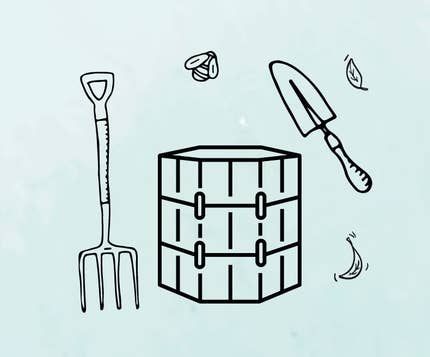
Mix
Use a long garden fork to mix the layers up at least once a month. Regularly turn your compost pile. Wear gloves and a mask.
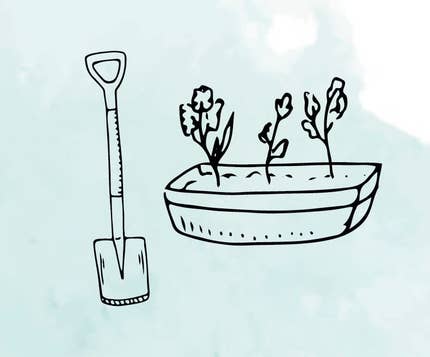
Harvest
After composting and turning regularly for approx. 4-6 months the compost is ready to harvest. Harvest the bottom third of the compost and spread on the garden. Shovel the top two-thirds of your compost back into the bin and harvest from the bottom as required.
1 / 0
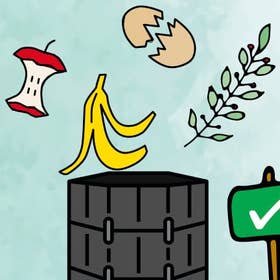
What's in?
Fruit and veg scraps, egg shells, bread, coffee grounds, garden trimmings, uncoated paper and cardboard.
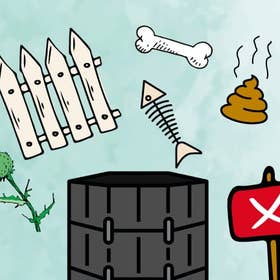
What's not?
Don't add meat, bones, fish, poultry, dairy, fats and oils, weeds, seed-heads, bulbs, cat and dog waste or treated wood.
Thanks to Love Food Hate Waste, find out more about composting at lovefoodhatewaste.co.nz